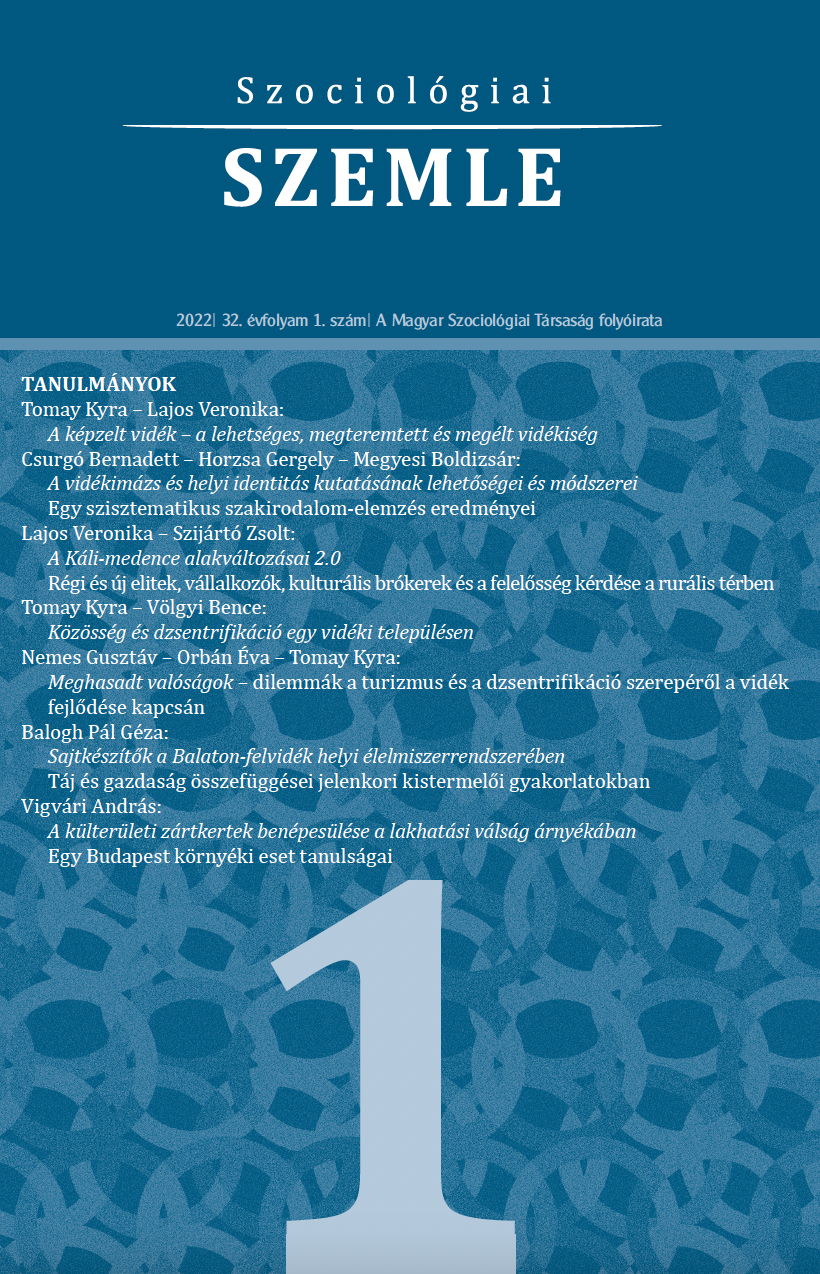Split realities
dilemmas in the role of tourism and gentrification in rural change
Abstract
Our study discusses the role of rural tourism in the gentrification of the countryside, its successes and dilemmas, using the examples of two fashionable domestic destinations. In the last decades, rural tourism (eco, gastronomic, alternative, etc.) has been seen by researchers and policy makers across Europe as an attractive solution to rural development problems. This development direction is essentially small-scale, relying on local resources, while bringing economic revitalisation and life to depopulated villages. On the first glance, therefore, it meets all the criteria of neo-endogenous sustainable development, as it is well known in the literature. On the contrary, our research shows that the local consequences of the ‘tourism industry’, even for (economically) successful localities, raise a number of dilemmas, often using landscapes rich in natural, built and cultural assets as a backdrop. Our analysis draws parallels between the well-known and much-described operations of urban, gentrification based regeneration policies and the currently unfolding effects of rural gentrification and development processes. Saving the built environment, raising the social and economic status of an area is relatively easy to be supported through rural tourism and gentrification, but complex protection of local values, development of the socio-economic fabric, i.e. dynamic preservation of the ‘local lifeworld’, is a more complex task, requiring an integrated approach embedded in the local community, reflexivity and consistent application of neo-endogenous development principles.





